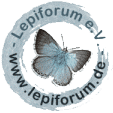3. Weitere Informationen
3.1. Etymologie (Namenserklärung)
Tabell et al. (2025: 54) erklären: "The specific epithet refers to the collecting area of the specimens."
3.2. Taxonomie
Tabell et al. (2025) diskutieren die bisher 7 aus Spanien (inkl. Balearen und Kanaren) bekannten Pleurota-Arten und ergänzen sie um gleich 6 neu beschriebene Arten. P. balearica sieht nach ihnen aus wie eine kleine P. pleurotella, die mehr beige statt grau gefärbt ist. Die Autoren erklären zur Genetik von P. balearica: "Of five samples sent for barcoding, four failed and one resulted in a 651 bpDNA barcode. The nearest neighbour to P. balearica is morphologically divergent P. candia Back, 1973, with a 7.13 % divergence."
3.3. Faunistik
Tabell et al. (2025: 54) schreiben knapp: "Known from three Balearic Islands (Spain): Mallorca, Ibiza and Cabrera." Es könnte sich also um einen Endemiten der Balearen handeln.
3.4. Typenmaterial
Tabell et al. (2025: 53) dokumentieren: "Holotype ♂ (GP 5989 J. Tabell, DNA sample 26270 Lepid Phyl [barcoding failed]): SPAIN, Mallorca, Boquer valley - by day, 13-V-2007, M. R. Honey leg. (coll. NHMUK). Paratypes: 2 ♂ (DNA sample 26268 Lepid Phyl [barcoding failed]), same collecting data as holotype; 1 ex. [abdomen missing], Mallorca, Cuber reservoir by day, 3-VI-2000, M. R. Honey leg.; 2 ♂, Mallorca, Bocquer valley, 25-V-2001, M. R. Honey leg.; 1 ♂, Mallorca, Puig de Sant Marti - by day, 19-V-2007, M. R. Honey leg.; 1 ♂ ibidem, Cova Sant Marti; 3 ♂ (DNA sample 26269 Lepid Phyl [barcoding failed], Mallorca, Son Carbata Sa Calobra road - by day, 21-V-2007, M. R. Honey leg.; 3 ♀ (DNA sample 26266 Lepid Phyl [barcoding failed]; DNA sample 26267 Lepid Phyl), Cabrera, beach - by day, 18-IV-2012, M. R. Honey leg.; 1 ♂, Eivissa, Cap d’Es Falcó, Pinar no fum, 30-IV-2006, I. Ferris & M.R. Honey leg.; 2 ♀ (GP 6471 J. Tabell), Eivissa, Can Savi, Sant Llorenç de Balàfia, 5-V-2006 swept atdusk, I. Ferris & M. R. Honey leg. (all colls. NHMUK and TAB)."
(Autor: Erwin Rennwald)
3.5. Literatur
- Erstbeschreibung: Tabell, J., Honey, M., Leger, T., Mutanen, M., Nupponen, T. & P. Sihvonen (2025): New and poorly known Pleurota Hübner, [1825] species from peninsular Spain, the Balearic Islands, and the Canary Islands (Lepidoptera: Oecophoridae, Pleurotinae). — SHILAP Revista de lepidopterología, 53 (209): 43-74. [zum PDF-Download auf shilap.org]




![Vorkommen auf den Balearischen Inseln (Spanien) [locus typicus: Mallorca, Boquer valley]](/res/img/flag/es-ib.gif)

